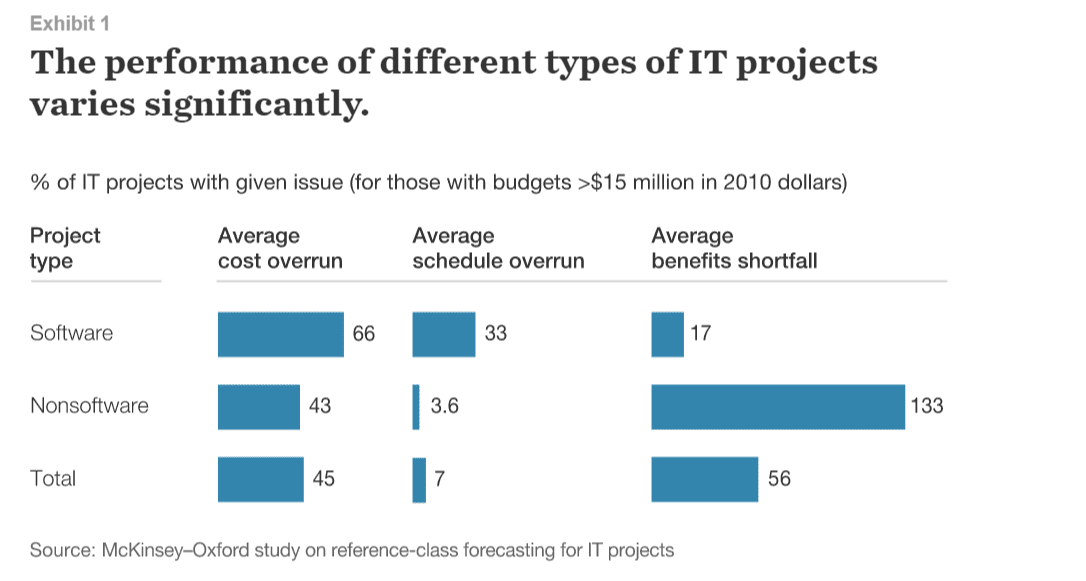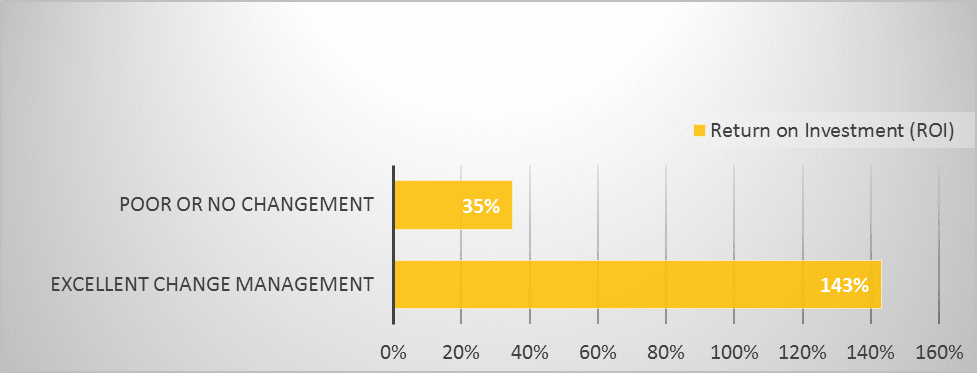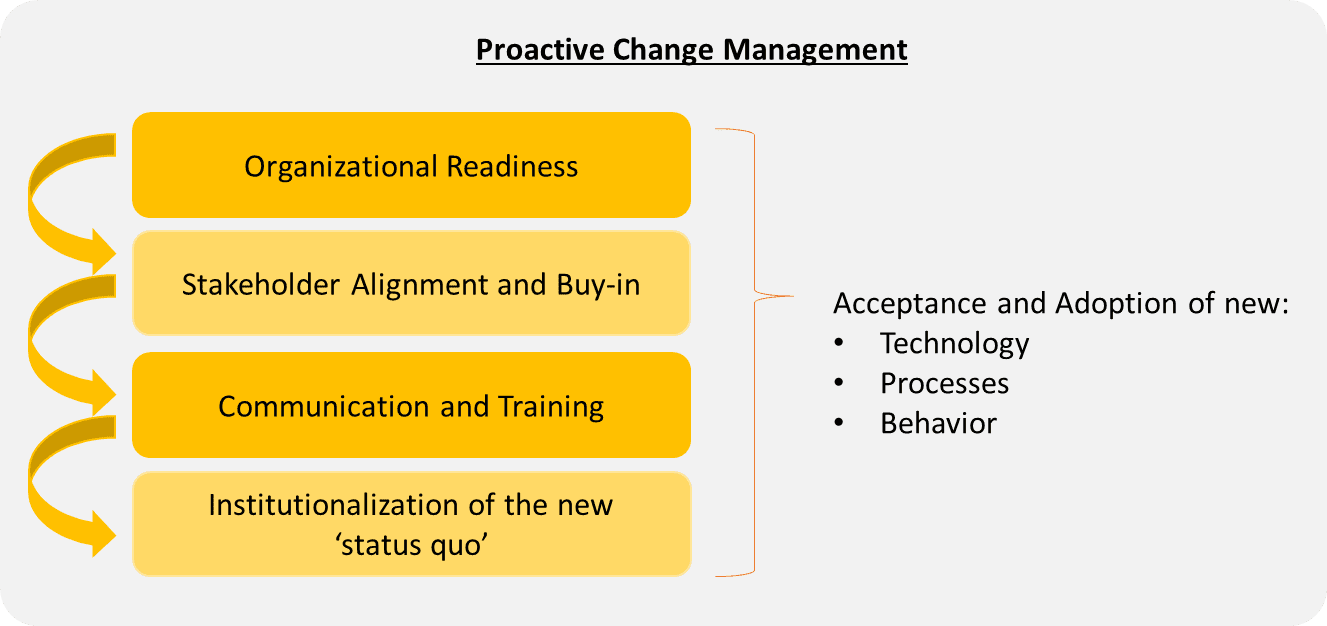Last updated: June 2020
When it comes to tech, any implementation can be a drain on resources – and even moreso when you’re implementing new processes around the tech. Let’s dive more into change management in technology and how you can ensure greater success in future implementations.
Technology Implementations
Organizations mostly implement new technology to integrate operations or automate functions. Billions of dollars are spent on such business improvement projects whose costs often outweigh realized benefits.
McKinsey & Company, in conjunction with the University of Oxford, conducted a study of 5,400 large scale IT projects and found that, overall, IT projects run 45 percent over budget and 7 percent over time while delivering 56 percent less organizational benefits than predicted.

So, why do implementations fail?
To understand the impact of various project variables on a project’s ROI, a study done by McKinsey examined many variables and in particular, the effect of organizational change management on a project’s ROI (“Change Management That Pays,” McKinsey Quarterly, 2002)
. The study indicates that ROI was:
– 143 percent when there was excellent change management
– 35 percent when there was poor or no change management

Source: Change Management That Pays,” McKinsey Quarterly, 2002
While there are a lot of other project variables that impact a project’s ROI, change management plays a very important role in realizing organizational benefits. Lack of proactive change management is one of the main contributing factors when it comes to failure of technology implementations.
A common mistake organizations make while estimating the ROI is the assumption that there will be 100 percent technology adoption at go-live.
To better understand an adoption curve, it’s important to understand the change process from a psychological perspective:
Any kind of change in an organization disrupts the status quo and causes chaos and resistance … leading to dip in performance and productivity levels.
Moving an organization to “the new way of doing business” is not just about re-designing processes, implementing new technology, or identifying desired behaviors. It’s also about ensuring the adoption of these new processes, technology and behaviors and sustaining it over time.
The key over here is “integrating” and “institutionalizing” the new status quo. If the new status quo doesn’t “stick” after go-live or in other words, your organization “regresses to old ways over time” – then you can never realize the intended organizational benefits associated with the business transformation.
Proactive Change Management
A technology implementation needs a proactive change management approach to ensure that the journey from the old status quo (old state) to the new status quo (future state) is completed in the most optimal way with minimal disruption and that the new status quo is sustained over time.
Adoption and acceptance of new technology, processes and behavior is impacted by four major factors: organizational readiness, stakeholder alignment and buy-in, communication and training and institutionalization of the new ‘status quo.’

A proactive approach can help organizations achieve intended ROI on their business transformations and acceptance and adoption plays a big role over here. In Carl Jung’s words – “We cannot change anything until we accept it.”
Have questions? Send them to us!
You may also find our article on core marketing processes to master insightful, as well as our blog on How resource constrains negatively impact project management
